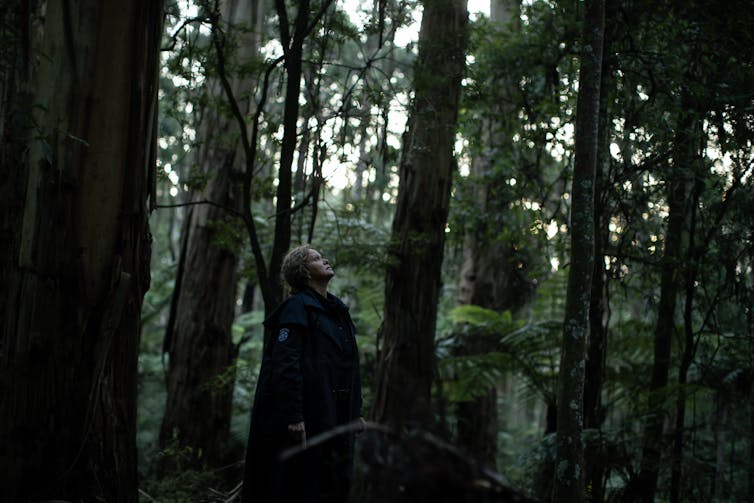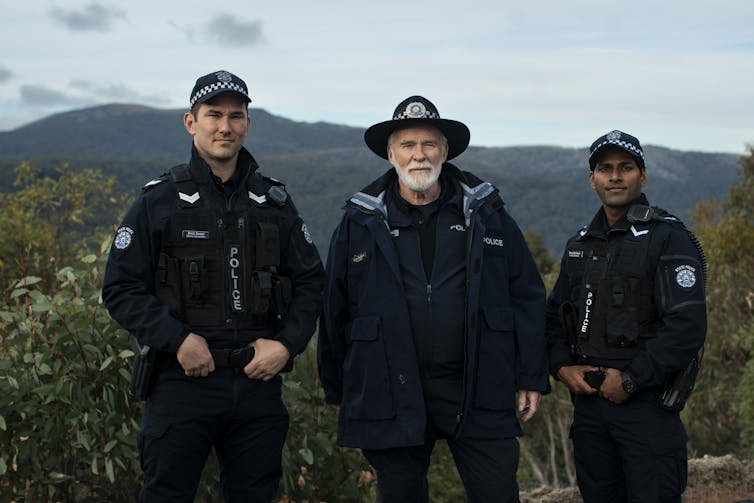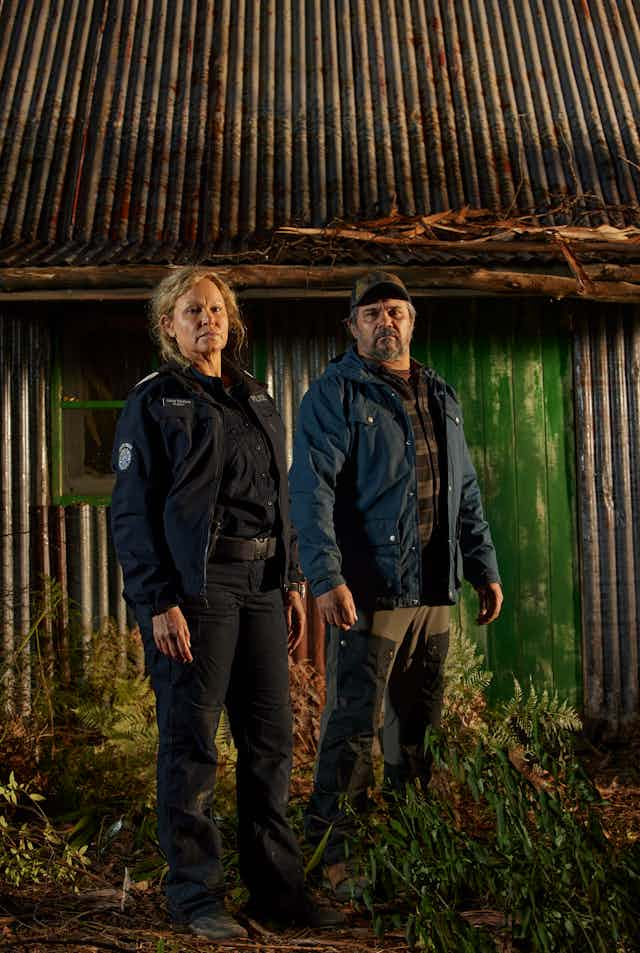“If you don’t know who your mob are, you don’t know who you are,” Detective Andrea “Andie” Whitford (played by Leah Purcell) is told early into the new crime series High Country.
Andie has recently arrived in the lush remote Victorian High Country with her partner Helen Hartley (Sara Wiseman), both trying to put traumas behind them as they start afresh.
Driving along a snaking winding road, Andie finds an isolated Mercedes Benz car. The driver’s door is wide open and the owner has left valuables behind, including keys and wallet.
Doctor Haber (Francis Greenslade) is another in a line of missing persons who have disappeared mysteriously into the rural mountain wilderness.
New in town and without the experience of other local police, Andie – to the decry of her colleagues – is assigned the case of solving a murder and disappearance of two locals that has the agitated town wanting answers.
Seasoned hands
From the opening of this new eight-part series on Binge, High Country feels in steady hands helped by the well-seasoned cast of familiar Australian crime genre actors. Purcell (previously seen in Wentworth Prison) is joined by Aaron Pedersen (Mystery Road), Nicholas Bell (Scrublands), Henry Nixon (The Kettering Incident), Geoff Morrell (Deep Water) and the versatile Northern Irish actor Ian McElhinney.
High Country was created and written by Marcia Gardner and John Ridley whose background includes scripting Australian network crime shows Wentworth Prison and Stingers. They are joined by Wentworth Prison director Kevin Carlin, who directs five of the eight episodes.
With this experience, Gardner, Ridley and Carlin have created a well-plotted and suspenseful procedural crime series that never loses pace or focus. An effective cliff hanger ends each episode making this a very binge-worthy show.
High Country sits within the tradition of uniformed middle-aged female police officers, most notably Jodie Foster in the recent series of True Detective: Night Country and Sarah Lancashire in Happy Valley.
Similar to these series, Andie’s own past comes back to haunt her, forcing her to confront the very thing that she was trying to flee. High Country equally deals with the issues and frustrations of women having to navigate themselves through the gender politics of a male-dominated workforce.
Read more: True Detective: Night Country's indigenous representation offers hope for decolonising television
Space for contemplation
Despite High Country arriving in a packed market of quality crime television and the show always playing within the tropes of the crime genre (dirty cops, historical town secrets, wrongly accused victims) there is enough nuance for it never to feel predictable or cliched.
An important reason for this is Purcell’s captivating performance, equally convincing in the sensitive domestic scenes with her partner and wayward teenager daughter, contrasted against dealing with the white, male, toxic thugs who think they run the town.

High Country possesses a vastness that allows ample opportunity for contemplation. The viewer is invited to delve into the intricacies of the setting and its characters. The writing and cinematography are multi-dimensional, offering depth and complexity that encourages reflection and engagement at each turn.
Australian rural noir
The line “if you don’t know who your mob are, you don’t know who you are” is repeated across the series. It also becomes the very thing that Andie must investigate in order to solve the crime.
In the rich tapestry of Australian crime fiction – and as its title would suggest – High Country adds to the rise of what has been dubbed “outback” or “rural” noir, sharing similarity with other recent Australian series such as Scrublands and Mystery Road.
A localised theme emerging through Australian rural noir is the Indigenous detective at the centre of the narrative. This is true of TV shows Mystery Road and High Country and also present in literary rural crime noir such as Julie Janson’s Madukka: The River Serpent (2022), an outback crime novel told from the perspective of a Aboriginal sleuth in her 50s.

Taking place in the Victorian Alps, High Country was filmed in the region that served as the backdrop for Robert Connelly’s latest feature film, Force of Nature: The Dry 2, which also deals with people missing in the Victorian wilderness.
Set in the close-knit community, the narrative tackles climate change, domestic violence, and Indigenous identity and land possession. Garner and Ridley paint a vivid picture of the ethical and societal ramifications of these challenges on rural populations.
High Country presents a poignant and impactful exploration of environmental crises and domestic turmoil that has every potential to resonate with a broad mainstream streaming audience.
High Country is on Binge from today.
Read more: 'You rarely see abuse directed at men': a look at the sexist abuse women police officers face online

